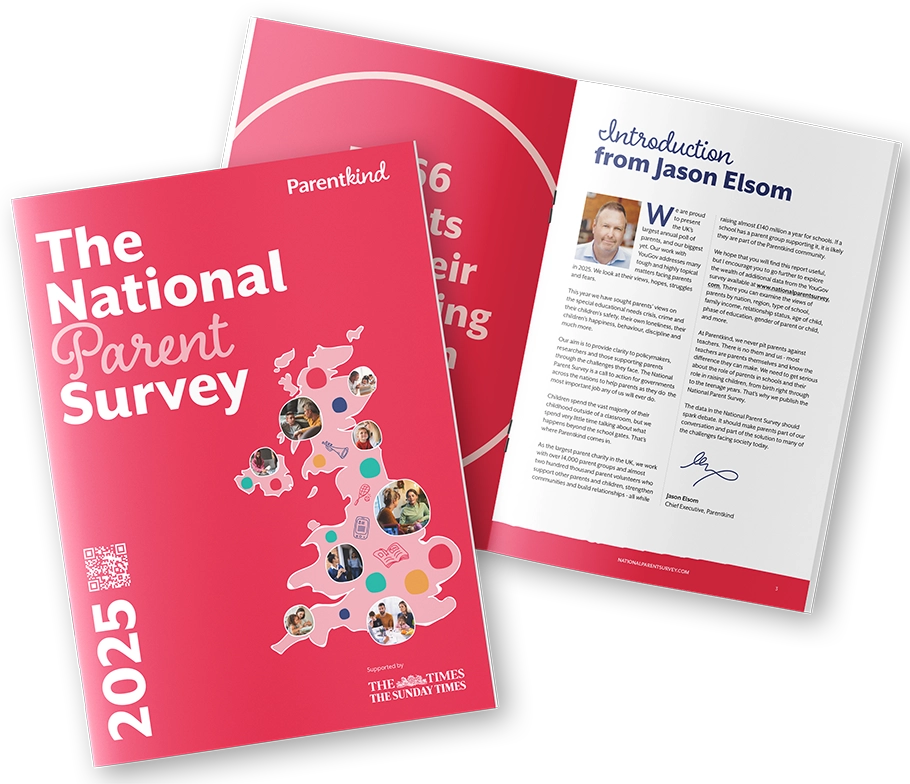
Jason Elsom, Parentkind Chief Executive Officer
The National Parent Survey is the UK’s largest parent poll gathering insights from 5,866 parents across the UK. Thousands of parents. Thousands of insights. The clearest picture yet of what families are facing.







The National Parent Survey ensures every parent is heard. Every year, the survey highlights the issues most pressing for parents. This year, in partnership with The Times and The Sunday Times, we are bringing those voices into the national conversation.

The National Parent Survey is the UK’s largest annual parent poll. In 2025, Parentkind commissioned YouGov to survey 5,866 parents of school-age children, generating more than 134,000 insights into what parents are really thinking.
Supported this year by The Times and The Sunday Times, the poll puts the spotlight on a wide range of topical issues, offering anyone with an interest in what parents are thinking an authoritative, up-to-date insight into the views of parents across the UK.
As the voice of parents in education, Parentkind makes the survey findings freely available to give parents a voice in education debates.
Stay connected with Parentkind to receive the latest news, updates and resources that help you support children, schools and communities and get our voice heard in education.

If you’d like to request access to the National Parent Survey data, please get in touch using the form below.
You will receive the data tables for the research, providing percentage breakdowns for each question and splits of the data by geographic and demographic factors.
The National Parent Survey was conducted online by YouGov. The fieldwork took place from 27th March to 18th April 2025 amongst 5,866 parents in England (3,391), Scotland (1,309), Wales (865) and Northern Ireland (301), who have at least one child aged 4 to 18 in school. If respondents have more than one child, parents are asked to answer all the questions with their oldest child who currently attends school/college in mind. The figures have been weighted and are representative of all UK parents. All figures, unless otherwise stated, are from YouGov plc. Analysis and reporting was carried out by Parentkind.
As the survey is not polling the entire population of parents in the UK, but rather a sample of the population, results are subject to a margin of error which is estimated to be between 0.5 and 2.5 percentage points for the whole sample. The exact margin of error varies with the proportion considered. This means that, if for instance, according to the survey 18% of respondents say that their child is always happy at school, in reality the proportion is likely to be between 15.5% and 20.5% (i.e. the margin of error would be +/-2.5%). Some of the statistically significant differences in results for particular demographic subgroups are mentioned in this report.

78-79 Pall Mall,
London
SW1Y 5ES
parentkind.org
policy@parentkind.org
Registered charity number 1072833